Roughly speaking, in the U.S. there are 74 million people who live in 340,000 communities governed by an Homeowners Association (HOA). The association board probably has a bigger impact on these individuals’ lives than the state, county, or local governments.
Most associations do more than maintain the common areas in the community. They also establish and enforce the rules, and they maintain property values, ensuring there’s a decent community order embraced by all residents.
Today, we’re talking about the obligations of a community association.
SF Bay Area Community Association Structures
When you purchase a condominium, townhome, or single-family home in a planned development, you’re buying into a community membership. These community associations are set up as nonprofit organizations, and they’re governed by a board that’s made up of community members who are voted in by homeowners in that community.
Board members are volunteers. They are not management professionals and frequently do not have the experience nor expertise to handle all aspects of their role.
Enforcing Community Association Rules
The HOA board makes and enforces rules for the safety of the community. These rules ensure that owners maintain their homes to a uniform set of standards. Some of the most common rules you’ve likely heard are restrictions on the number of vehicles a resident has on the premises, restrictions on paint colors and changes to the exterior, and even landscaping rules. You may also find your association limits the types and numbers of pets that homeowners have.
HOA Obligations: Maintenance of Common Areas
The HOA oversees the maintenance of common areas that are not maintained by individual property owners. These areas include pools, playgrounds, sidewalks, clubhouses, and fitness centers.
The HOA will also coordinate trash pickup, establish water accounts, and take care of road maintenance. The funds available to an association come from monthly, quarterly, or annual dues paid by the members of the community. The fees often cover:
- Water
- Utilities
- Insurance
- Landscaping
- General maintenance
Money is also set aside for future capital improvements.
Each state sets its own laws that dictate what HOA boards and communities can and cannot do. The rules vary, but you need to know them. For that reason, it’s often in the association’s interests to hire a management company and/or consult with a real estate attorney who is familiar with associations and laws by which they are bound.
Responsibilities and Obligations of Association Board Members
 Board members and community managers are entrusted with specific responsibilities.
Board members and community managers are entrusted with specific responsibilities.
First, there’s the Duty of Care. This means board members must act prudently and responsibly carry out their roles on the board. They must make decisions that benefit the entire association and they must understand how those decisions impact the community.
There’s also the Duty of Loyalty. This means board members must carry out the board duties without engaging in any activities or relationships that would create a conflict of interest.
Roles of Authority of the board members are also established. These particulars are often found in the governing documents. It’s critically important that the board follows their established rules and procedures to ensure the entire association remains in compliance with all regulatory issues and timelines. For example, they need to know when a vote is needed to make a change. They must hold annual or semi-annual meetings and notify the residents that those meetings are open to members.
The obligations of an association are vast. There are many benefits to working with the guidance of a professional association management company.
Good association management ensures the community can remain safe and well-maintained. Property values also remain high, and a successful future is guaranteed for that association and all its members.
If you have any questions regarding the management of your property or association in the San Francisco Bay Area, please contact us at Bayside Management. Founded in 1982 in Marin County, we have expanded to offer full-service property management in San Mateo and to the entire San Francisco Peninsula. We manage single-family properties, multi-unit complexes, commercial properties, and homeowner associations.
 Peter Boda
Peter Boda Jeff Hacker
Jeff Hacker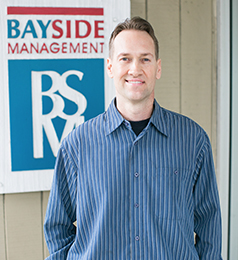 Dylan Motchar
Dylan Motchar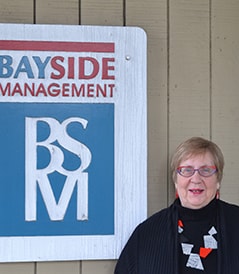 Barbara Boyd
Barbara Boyd Joanelle Russell
Joanelle Russell Mary Wiegmann
Mary Wiegmann Joseph DeNoia
Joseph DeNoia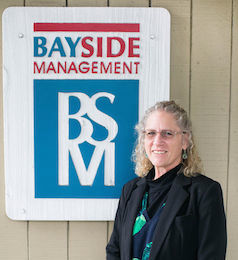 Beth Nagy
Beth Nagy Jasmin Peraza
Jasmin Peraza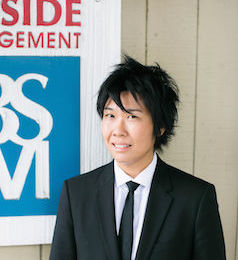 Carmin Wong
Carmin Wong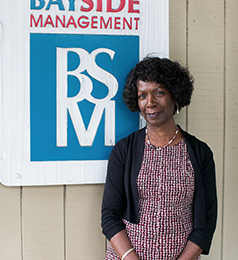 Pauline Smith
Pauline Smith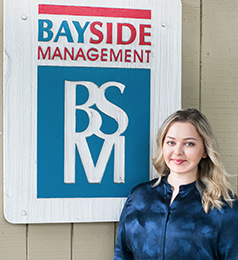 Victoria Taylor
Victoria Taylor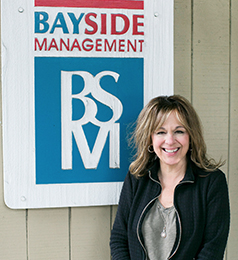 Yvette Perreca
Yvette Perreca Elizabeth Valladares
Elizabeth Valladares Anthony Thompson
Anthony Thompson Drew Reischl
Drew Reischl Nick Lange
Nick Lange Collette Counter
Collette Counter Justin Barton
Justin Barton